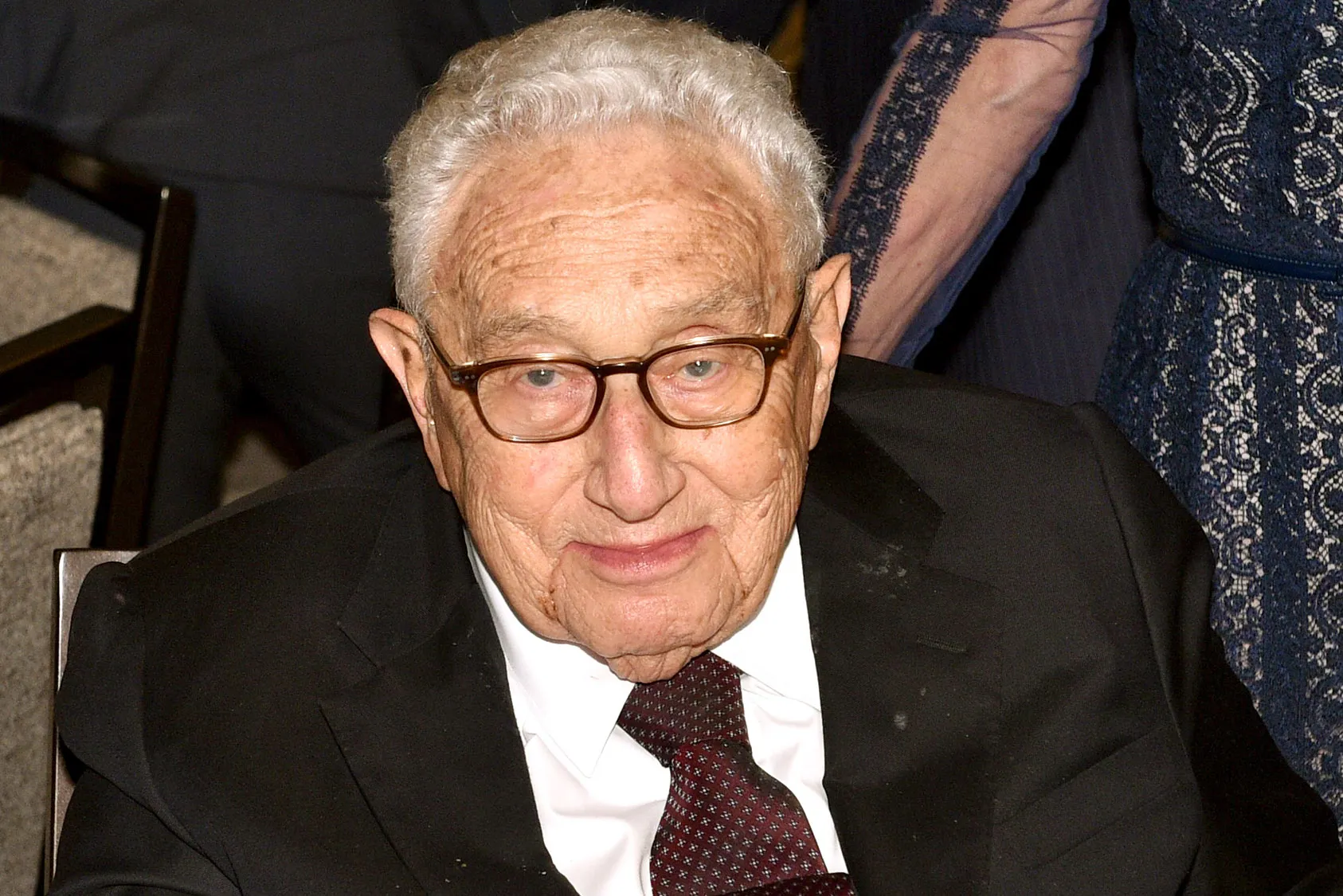Diplomacy
Revamping Foreign Policy of Pakistan in the Emerging Regional Order: Impact, Consequences, and Possibilities

Table of Contents
Summary:
Pakistan’s foreign policy is undergoing a revamp to align with the changing dynamics of the emerging regional order. This article explores the impact, consequences, and possibilities of this revamp. The emerging regional order is characterized by multipolarity, economic interdependence, and security challenges. Pakistan must reassess its strategic priorities, strengthen regional cooperation, balance relations with major powers, engage in economic diplomacy, and foster peace and stability. Revamping foreign policy may bring challenges and resistance, but the potential benefits include enhanced regional integration, economic prosperity, and improved security. Pakistan can position itself as a key player in the evolving geopolitical landscape by embracing these changes.

In today’s rapidly evolving global landscape, countries around the world are reassessing their foreign policies to adapt to the changing dynamics. Pakistan, a key player in South Asia, is no exception. With the emergence of a new regional order, it is crucial for Pakistan to revamp its foreign policy to align with the evolving geopolitical realities. This article explores the impact, consequences, and possibilities of revamping Pakistan’s foreign policy in the emerging regional order.
Introduction
Pakistan’s foreign policy has traditionally focused on maintaining strong ties with its neighbors, particularly China and the United States, while navigating complex regional dynamics. However, the emergence of a new regional order, marked by shifting alliances, emerging powers, and evolving security challenges, necessitates a comprehensive reassessment of Pakistan’s foreign policy priorities and strategies.
Understanding the Emerging Regional Order
The emerging regional order in South Asia and beyond is characterized by several key factors. Firstly, there is a growing multipolarity, with multiple powers vying for influence in the region. Secondly, economic interdependence and connectivity initiatives have gained prominence, offering new avenues for regional integration. Thirdly, security challenges, including terrorism, extremism, and border disputes, continue to shape the regional landscape.
Reassessing Pakistan’s Strategic Priorities
Revamping Pakistan’s foreign policy requires a reassessment of its strategic priorities. While maintaining strong ties with traditional allies remains important, Pakistan must also diversify its partnerships and engage with emerging powers in the region. This involves striking a balance between its relationship with China, deepening engagement with countries in Central Asia and the Middle East, and fostering ties with regional organizations like the Association of Southeast Asian Nations (ASEAN) and the Gulf Cooperation Council (GCC).
Strengthening Regional Cooperation
In the emerging regional order, regional cooperation and integration are critical for collective progress and addressing shared challenges. Pakistan should actively participate in regional forums and initiatives, such as the South Asian Association for Regional Cooperation (SAARC) and the Shanghai Cooperation Organization (SCO). By promoting dialogue, trade, and people-to-people exchanges, Pakistan can contribute to building a more interconnected and prosperous region.
Balancing Relations with Major Powers
Pakistan’s foreign policy revamp should involve striking a delicate balance in its relations with major powers, particularly China, the United States, and Russia. While maintaining its strong strategic partnership with China, Pakistan must also engage constructively with the United States to address mutual concerns, such as counterterrorism and regional stability. Additionally, nurturing ties with Russia can open up new avenues for economic cooperation and security collaboration.
Engaging in Economic Diplomacy
Economic diplomacy will play a crucial role in Pakistan’s foreign policy revamp. The country should actively seek foreign direct investment, promote trade relations, and enhance economic cooperation with regional and global partners. Emphasizing the development of key sectors such as energy, infrastructure, agriculture, and technology can unlock significant economic potential and foster sustainable growth.
Fostering Peace and Stability
As Pakistan revamps its foreign policy, it must prioritize efforts to foster peace and stability in the region. This includes actively participating in conflict resolution initiatives, promoting dialogue between neighboring countries, and playing a constructive role in addressing regional security challenges. By prioritizing peaceful resolutions, Pakistan can contribute to a more stable and prosperous regional order.
Consequences of Revamping Foreign Policy
Revamping foreign policy comes with its own set of consequences. Pakistan may face challenges and resistance from various quarters, including vested interests and geopolitical rivalries. Balancing competing priorities and managing potential repercussions will require careful diplomatic maneuvering and strategic foresight. However, the potential benefits, such as enhanced regional integration, economic prosperity, and improved security, outweigh the challenges.
Conclusion
In the emerging regional order, Pakistan stands at a critical juncture where revamping its foreign policy is imperative. By reassessing strategic priorities, strengthening regional cooperation, balancing relations with major powers, engaging in economic diplomacy, and fostering peace and stability, Pakistan can position itself as a key player in the evolving geopolitical landscape. While challenges and consequences are inevitable, the opportunities for progress, prosperity, and a more interconnected South Asia are vast.
FAQs
1. How will revamping Pakistan’s foreign policy impact its relationship with China? Revamping Pakistan’s foreign policy does not imply a diminishing relationship with China. Instead, it emphasizes the need for diversification and broader engagement with other regional and global actors while maintaining the strategic partnership with China.
2. Will revamping foreign policy jeopardize Pakistan’s relationship with the United States? Revamping foreign policy provides an opportunity to address mutual concerns and strengthen the relationship between Pakistan and the United States. It aims to strike a balance between various partnerships while fostering cooperation on shared interests.
3. What role does economic diplomacy play in Pakistan’s foreign policy revamp? Economic diplomacy plays a vital role in attracting investment, expanding trade relations, and fostering economic cooperation. It aims to unlock Pakistan’s economic potential and promote sustainable growth.
4. How can Pakistan contribute to fostering peace and stability in the region? Pakistan can contribute to fostering peace and stability by actively participating in conflict resolution initiatives, promoting dialogue between neighboring countries, and playing a constructive role in addressing regional security challenges.
5. What are the potential consequences of revamping Pakistan’s foreign policy? Revamping foreign policy may face challenges and resistance from various quarters. Balancing competing priorities and managing potential repercussions will require diplomatic maneuvering and strategic foresight. However, the potential benefits, such as enhanced regional integration, economic prosperity, and improved security, outweigh the challenges.
In conclusion, revamping Pakistan’s foreign policy in the emerging regional order is crucial for adapting to the evolving geopolitical realities. By reassessing strategic priorities, strengthening regional cooperation, engaging in economic diplomacy, and fostering peace and stability, Pakistan can position itself as a key player in the region. While challenges and consequences are inevitable, the potential benefits and opportunities for progress and prosperity are immense
China
Unveiling the Enigma: Why Did China’s Ousted Foreign Minister Qin Gang Step Down as Lawmaker? Exploring the Intricacies of His Departure

Introduction
In a recent development that has sparked widespread interest and speculation, Qin Gang, China’s former Foreign Minister, has stepped down as a lawmaker. This move comes in the wake of his removal from the foreign ministry, raising questions about the reasons behind his departure from both positions. Let’s delve into the intricacies of this significant event and explore its implications.
Who is Qin Gang?
Qin Gang’s Background and Career Trajectory:
Qin Gang is a seasoned diplomat who has held various prominent positions within the Chinese government. His career spans decades, during which he has been involved in shaping China’s foreign policy and representing the country on the global stage. As a trusted aide to President Xi Jinping, Qin Gang’s influence extended beyond his role as Foreign Minister.
The Ousting of Qin Gang:
Reasons Behind Qin Gang’s Removal as Foreign Minister:
Qin Gang’s tenure as Foreign Minister was marked by both successes and controversies. His diplomatic approach and handling of key international issues drew mixed reactions, leading to speculation about internal power struggles within the Chinese leadership. The decision to remove him from his position sent shockwaves through diplomatic circles and raised questions about the direction of China’s foreign policy.
Qin Gang’s Transition to Lawmaking:
Qin Gang’s Appointment as a Lawmaker:
Following his removal as Foreign Minister, Qin Gang was appointed as a lawmaker in China’s legislative body. This move was seen as a strategic decision to maintain his influence within the political system despite his exit from the foreign ministry. However, his resignation from this position has added another layer of complexity to his political trajectory.
Factors Influencing Qin Gang’s Resignation:
Internal Politics and Power Dynamics:
The intricate web of political dynamics within the Chinese government likely played a significant role in Qin Gang’s decision to step down as a lawmaker. Speculations abound regarding potential conflicts of interest, disagreements with key figures, or shifts in policy priorities that may have prompted his departure. Understanding these internal factors is crucial to grasping the full context of his resignation.
Implications for China’s Foreign Policy:
Impact on China’s Diplomatic Relations:
Qin Gang’s departure from both the foreign ministry and his lawmaker position is expected to have ripple effects on China’s diplomatic engagements. His successor in the foreign ministry will inherit a complex landscape shaped by Qin Gang’s tenure, requiring adept navigation of existing relationships and potential challenges. Observers are closely monitoring how this transition will impact China’s stance on key global issues.
Conclusion:
The resignation of Qin Gang as a lawmaker following his removal as Foreign Minister marks a significant chapter in Chinese politics and diplomacy. The reasons behind his departure, the internal dynamics at play, and the implications for China’s foreign policy all contribute to a nuanced understanding of this event. As we continue to analyze these developments, one thing remains clear: Qin Gang’s exit has far-reaching consequences that will shape China’s future trajectory on the world stage.
Diplomacy
Navigating Diplomacy with Donald Trump: A European Perspective

Table of Contents
Introduction
As we navigate through the complexities of global politics in this post-Trump era, it’s essential to reflect upon how Europe approached negotiations during his presidency. This thoughtful analysis will delve into strategies that could have been more effective when dealing with former President Donald J. Trump, offering insights from both historical context and contemporary perspectives.
Understanding the Context
To comprehend the challenges faced by European leaders while interacting with Trump, one must first grasp the unique nature of his administration. His unconventional approach to diplomacy often involved personal attacks, blunt language, and an apparent disregard for established norms. As such, traditional methods of negotiation were frequently met with resistance or outright rejection.
Key Considerations for Effective Negotiations
In order to achieve successful outcomes, European leaders would do well to consider several key factors:
- Emphasize shared values: Highlight areas where common ground exists between the U.S. and Europe, focusing on democratic principles, the rule of law, and respect for international institutions.
- Be proactive: Anticipate potential obstacles and develop preemptive solutions rather than reactively responding to provocations.
- Maintain consistency: Maintain a cohesive front among member states, avoiding internal divisions that might undermine collective bargaining power.
- Communicate effectively: Utilize clear, concise messaging that is easily understood by all parties, minimizing misunderstandings and misinterpretations.
- Adapt to changing circumstances: Be prepared to adjust tactics as needed based on new information, shifting priorities, or evolving political landscapes.
Lessons Learned from Past Interactions
European leaders encountered numerous difficulties throughout their interactions with Trump. Some notable examples include:
- The Paris Climate Agreement: Despite strong support from European nations, Trump announced the United States’ withdrawal from the agreement, citing economic concerns.
- Transatlantic Trade Relationship: Tensions rose over trade tariffs imposed by Trump, which threatened to disrupt long-established trading relationships.
- Russia Sanctions: Disputes emerged regarding sanctions against Russia, with Trump expressing scepticism about their effectiveness.
These instances highlight the need for European leaders to adapt their approaches to better accommodate Trump’s idiosyncratic style of leadership.
Strategies for Successful Engagement
Based on these lessons learned, European leaders can implement the following strategies to improve their engagement with future American administrations:
- Focus on mutual benefits: Emphasize win-win scenarios that benefit both sides, thereby reducing the likelihood of confrontational exchanges.
- Promote transparency: Encourage open communication channels and regular dialogue, fostering trust and understanding between parties.
- Stay informed: Keep abreast of current events and developments within the U.S., enabling European leaders to anticipate shifts in policy and respond accordingly.
- Build coalitions: Collaborate with like-minded countries to strengthen collective bargaining positions and amplify voices advocating for shared interests.
By implementing these strategies, European leaders may find themselves better equipped to handle challenging situations and foster constructive dialogues with future American presidents.
Conclusion
While navigating the intricacies of diplomacy with Donald Trump proved difficult at times, European leaders can learn valuable lessons from those experiences. By adopting a strategic, proactive, and collaborative approach, they stand a greater chance of achieving mutually beneficial outcomes in their dealings with future American administrations. Ultimately, maintaining a strong relationship with the United States remains crucial for ensuring peace, stability, and prosperity across the globe.
Diplomacy
Henry Kissinger’s Death: What You Need to Know About His Legacy

Table of Contents
Introduction
Henry Kissinger was a prominent figure in US foreign policy, serving as National Security Advisor under President Nixon and later as Secretary of State under President Ford. He was known for his controversial foreign policy decisions that left an indelible mark on US foreign policy. Kissinger passed away on November 30, 2023, at the age of 100, leaving behind a legacy that is both celebrated and criticized.
Early Life and Career
Henry Kissinger was born in Germany in 1923 and immigrated to the United States in 1938 to escape Nazi persecution. He attended Harvard University, where he earned a bachelor’s degree in political science and a doctorate in international relations. After completing his studies, Kissinger worked as a professor of government at Harvard and as a consultant to the US government on foreign policy issues.
Role in US Foreign Policy
Kissinger’s role in US foreign policy began in 1969 when he was appointed National Security Advisor by President Nixon. In this role, Kissinger played a key role in shaping US foreign policy during the Cold War. He was instrumental in negotiating the Strategic Arms Limitation Treaty (SALT) with the Soviet Union and in establishing diplomatic relations with China.
In 1973, Kissinger was appointed Secretary of State by President Ford. In this role, he continued to play a prominent role in shaping US foreign policy. He was involved in negotiations to end the Vietnam War and played a key role in the Middle East peace process.
Controversies and Criticisms
Despite his many accomplishments, Kissinger’s legacy is also marked by controversy. He has been accused of war crimes for his role in the US bombing campaign in Cambodia during the Vietnam War. He has also been criticized for his support of authoritarian regimes in Latin America and for his role in the overthrow of democratically elected governments in Chile and elsewhere.
Legacy and Impact
Despite the controversies surrounding his legacy, Kissinger’s impact on US foreign policy cannot be denied. He was a master of diplomacy and played a key role in shaping US foreign policy during a critical period in world history. His legacy continues to be debated, with some hailing him as a visionary and others condemning him as a war criminal.
Conclusion
In conclusion, Henry Kissinger was a complex figure whose legacy is both celebrated and criticized. He played a key role in shaping US foreign policy during a critical period in world history and his impact on US foreign policy cannot be denied. However, his legacy is also marked by controversy, and his role in some of the darker chapters of US foreign policy continues to be debated. Ultimately, the lessons that can be learned from Kissinger’s career are complex and multifaceted, and his legacy will continue to be debated for years to come.
-

 Featured3 years ago
Featured3 years agoThe Right-Wing Politics in United States & The Capitol Hill Mayhem
-

 Elections 20242 months ago
Elections 20242 months agoAnalyzing Trump’s Super Tuesday Triumph and Nikki Haley’s Strategic Moves
-

 News2 years ago
News2 years agoPrioritizing health & education most effective way to improve socio-economic status: President
-

 China3 years ago
China3 years agoCoronavirus Pandemic and Global Response
-

 Canada3 years ago
Canada3 years agoSocio-Economic Implications of Canadian Border Closure With U.S
-

 Conflict3 years ago
Conflict3 years agoKashmir Lockdown, UNGA & Thereafter
-

 Democracy3 years ago
Democracy3 years agoMissing You! SPSC
-

 Democracy3 years ago
Democracy3 years agoPresident Dr Arif Alvi Confers Civil Awards on Independence Day
























